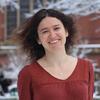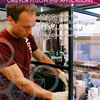In the News
2016
Sep
29
Anna Shneidman appointed as Managing Director of KIBST
Dr. Miyoung Chun to step down
Kavli Postdoctoral Fellowships at Delft, the Netherlands
Program on brain and visual perception: "How Do We See?"
BIOFOULING MINISYMPOSIUM: MARINE FOULING ISSUES
The Kavli Foundation Gives $10.5 Million to the National Academy of Sciences to Establish Fred Kavli Endowment Fund
14th International Workshop on Nanomechanical Sensing
Mimicking Biological Movements With Soft Robots
Creating a Slippery Slope on the Surface of Medical Implants
2016
Oct
26
2016
Oct
13
2016
Sep
21
2016
Oct
04


